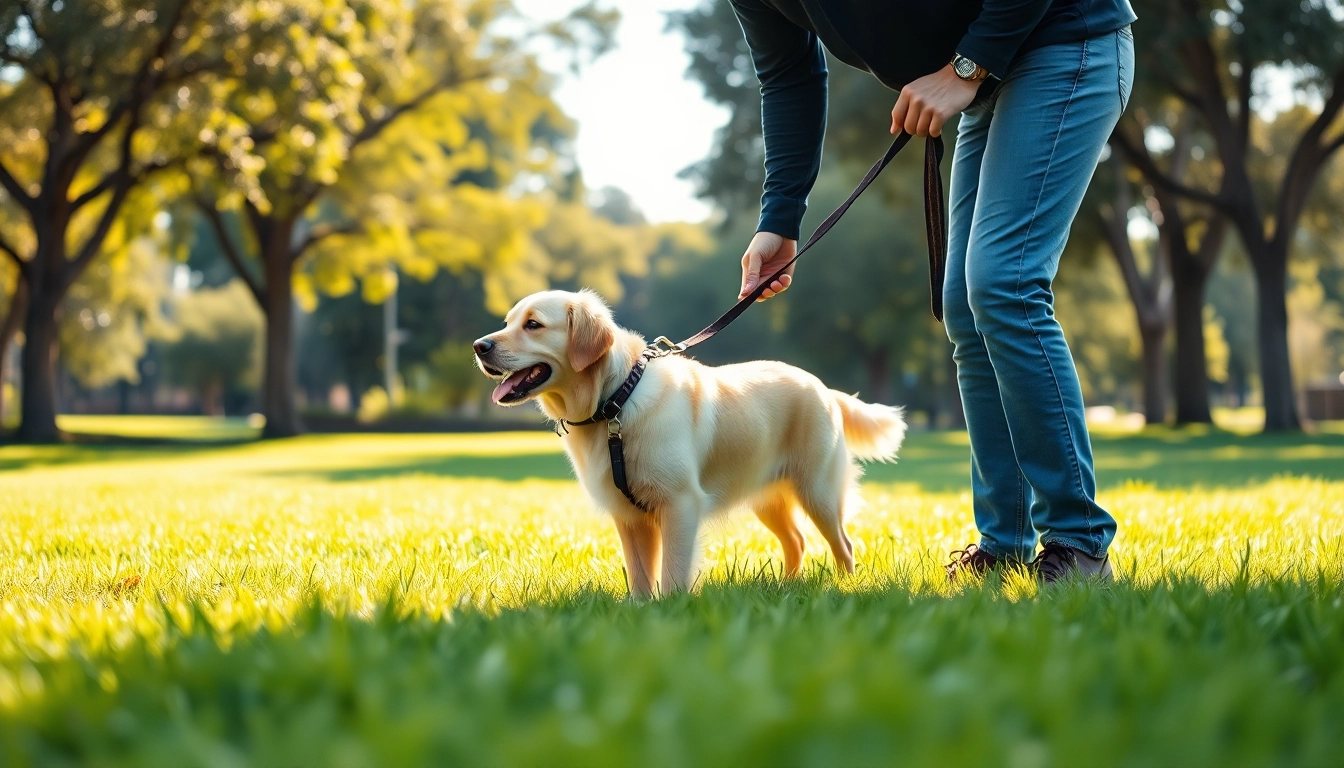Introduction to Service Dogs for Sale
Welcome to the world of service dogs, where unwavering companionship meets essential assistance. Whether you’re living with a physical disability, mental health condition, or other specialized needs, a trained service dog can significantly improve your quality of life. If you have considered acquiring a four-legged friend to aid you in everyday tasks, service dogs for sale may be just what you are looking for. In this comprehensive guide, we will explore the essential characteristics, types, benefits, and considerations for acquiring a service dog to ensure you make an informed decision.
What are Service Dogs?
Service dogs are specially trained canines that provide assistance to individuals with disabilities. Defined by the Americans with Disabilities Act (ADA), these dogs perform specific tasks to aid their handlers. Unlike emotional support animals or therapy dogs, service dogs are trained to complete tasks that directly mitigate their owner’s disabilities. This may include a range of activities, from guiding the visually impaired to alerting individuals with hearing impairments of sounds. Each service dog is trained based on the unique needs of the handler, making them an invaluable part of daily life.
Roles and Recognitions of Service Dogs
The roles of service dogs vary widely, depending on their training and the specific needs of their handlers. Common roles include:
- Guide Dogs: Assist visually impaired individuals navigate their environment safely.
- Mobility Assistance Dogs: Aid individuals with physical disabilities, helping with balance, retrieving objects, and opening doors.
- Medical Alert Dogs: Alert their handlers about medical conditions such as seizures, diabetes, or allergies.
- Psychiatric Service Dogs: Support individuals with mental health disorders, like PTSD, by providing comfort and grounding during anxiety attacks.
Service dogs enjoy specific protections and access rights under the ADA, allowing them to accompany their handlers in virtually all public spaces, including restaurants, airplanes, and stores.
Why Consider a Service Dog for Your Needs?
Opting for a service dog can yield numerous benefits, enhancing independence, support, and overall quality of life. Service dogs not only assist with tasks but also act as loyal companions, providing emotional support and comfort. Individuals facing physical limitations or mental health challenges often report improved confidence, a sense of security, and increased social interactions due to the presence of a service dog. With their ability to recognize and react to changes in their handler’s state, service dogs can also facilitate quicker responses to medical emergencies.
Types of Service Dogs Available for Sale
Medical Alert Service Dogs
Medical alert service dogs are trained to notify their handlers about specific medical issues before they escalate. For instance, dogs can detect changes in scent that occur when a person’s blood sugar level drops or alert them before they experience a seizure. Training these dogs requires a rigorous process that focuses on honing their natural instincts and abilities. By providing timely alerts, these dogs can help prevent emergencies and offer peace of mind to handlers and their families.
Mobility Assistance Dogs
Mobility assistance dogs cater to individuals who face challenges with physical tasks resulting from mobility disabilities. They can help with tasks such as retrieving items, opening doors, and providing balance support. Their training often emphasizes task-specific behaviors, such as pulling wheelchairs or aiding with standing and sitting. The presence of a mobility assistance dog can greatly enhance the independence of handlers, allowing them to navigate their surroundings more confidently.
Psychiatric Service Dogs
Psychiatric service dogs are invaluable companions for individuals dealing with mental health conditions. These dogs are trained to recognize signs of anxiety, panic attacks, or other psychological episodes, and can provide comfort through various methods such as deep pressure therapy. They may also interrupt harmful behaviors, remind their owners to take medication, or help ground their handler in reality during stressful situations. In essence, psychiatric service dogs empower their handlers to manage their mental health challenges more effectively.
The Benefits of Owning a Service Dog
Improving Daily Life and Independence
One of the foremost benefits of owning a service dog is the improvement in daily life and independence. With the assistance of a service dog, handlers can perform a variety of tasks that might have otherwise proven difficult or impossible. From fetching items and opening doors to navigating crowded areas, these dogs help their owners reclaim their autonomy. The supportive companionship of a service dog also tends to decrease reliance on others, allowing for a greater sense of freedom and self-reliance.
Emotional Support and Companionship
In addition to physical assistance, service dogs provide significant emotional support. The bond between a handler and their dog is profound and often serves as a source of comfort during challenging times. Studies have shown that interactions with dogs can reduce anxiety, alleviate stress, and boost overall mood. This companionship helps to combat feelings of loneliness often associated with disabilities, fostering a stronger sense of community and belonging for owners.
Social Factors and Community Integration
Having a service dog often leads to increased social interactions and better community integration. Dogs naturally draw attention, which can serve as an icebreaker for handlers seeking to connect with others. Whether it’s chatting with fellow dog lovers at the park or participating in community events, service dogs can enhance social engagement for their handlers. Moreover, service dogs often encourage a more active lifestyle, as their need for exercise provides motivation for handlers to remain engaged with their surroundings.
How to Choose the Right Service Dog for Sale
Assessing Your Specific Needs
The first step in acquiring a service dog is to assess your specific needs. Consider what tasks you would like your service dog to perform: do you require assistance with mobility, medical alerts, or emotional support? Understanding your requirements will help you choose the right type of service dog that can cater to your lifestyle. It’s also vital to involve healthcare professionals or specialists who can provide insights based on your health needs.
Evaluating Training and Compatibility
An essential aspect of choosing a service dog is evaluating their training and compatibility with your lifestyle. Dogs come with different temperaments and energy levels; therefore, it’s crucial to select one that aligns with your personality and daily routine. Inquire about the training methods used, as well as the dog’s experiences and adaptability in various environments. Meeting potential dogs can provide valuable insights into their behaviors, allowing you to gauge any connection or fit for your needs.
Understanding the Adoption Process
The adoption process can vary significantly among service dog providers. It typically involves application forms, interviews, and evaluations to ensure that the prospective owner is suitable for dog ownership. Some organizations may require a home visit to assess the environment where the dog will live. Additionally, prospective handlers should clarify the costs involved, which may encompass training fees, equipment, and ongoing support. Understanding every stage of the adoption process is essential to ensure a smooth transition for both you and your future service dog.
Resources and Support for Service Dog Owners
Training and Continued Education
Owning a service dog comes with the responsibility of continuous training and education. Many organizations offer resources, workshops, and courses for service dog handlers to ensure that they maintain and strengthen their dog’s skills over time. Engaging in periodic training can help deepen the bond between the handler and the dog while ensuring ongoing safety and efficiency in their partnership.
Legal Rights and Protections
As a service dog owner, it’s imperative to understand your legal rights and protections under the ADA. This legislation grants service dog handlers the right to access public spaces with their dogs and prohibits discrimination based on disability. Familiarizing yourself with these rights is crucial in advocating for yourself and your service dog, fostering a more accessible environment for everyone.
Connecting with Service Dog Communities
Joining service dog communities can provide unwavering support and valuable insights. Many online forums, local groups, and social media networks serve as platforms where handlers share their experiences, offer advice, and build meaningful connections. Engaging with these communities can enhance your journey and foster a sense of belonging while empowering you to navigate the challenges and successes of being a service dog owner.



